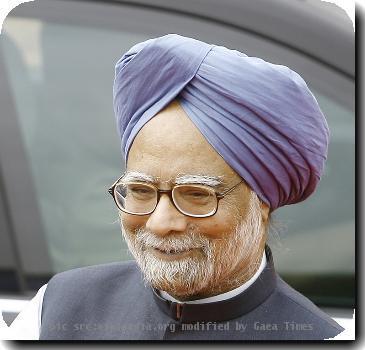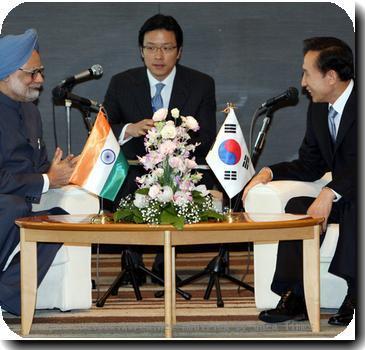SAARC is glass half empty, region needs empowerment: PM
By Sarwar Kashani, IANSWednesday, April 28, 2010
THIMPHU - The 25-year experience of SAARC has been like a glass half empty, Indian Prime Minister Manmohan Singh said Wednesday, warning South Asian leaders that the region housing a fourth of the human race could face \”marginalisation and stagnation\” if not empowered and better connected.
\”In looking back at these two-and-a-half decades (of SAARC), we can claim the glass is half full and compliment ourselves, or we can admit the glass is half empty and challenge ourselves,\” Manmohan Singh said in his address at the 16th South Asian Association for Regional Cooperation (SAARC) summit.
\”I believe we should challenge ourselves by acknowledging that the glass of regional cooperation, regional development and regional integration is half empty,\” the prime minister said at the summit attended by the leaders of India, Bhutan, Bangladesh, Pakistan, Afghanistan, Nepal, Sri Lanka and the Maldives.
Pitching for greater regional cooperation, Manmohan Singh shared the \”vision of inclusive growth in South Asia both within our countries and for the region of South Asia as a whole\”.
The region, he said, should enable freer movement of people, of goods, of services and of ideas. \”If we do not, we run the risk of marginalisation and stagnation.\”
Noting that SAARC member countries were able to cooperate individually as members in various international forums, he said it was \”unfortunate that, together, the people of South Asia do not have the voice they should and could have in the global polity\”.
\”The 21st century cannot be an Asian century unless South Asia marches together,\” he said.
The two-day summit began Wednesday afternoon in this idyllic capital city of Bhutan at its Tashicho Dzong, the main secretariat building, which houses the National Assembly Hall, the office of the king and the throne room.
Manmohan Singh said intra-regional trade flows in the region have grown and transport and telecommunication links have expanded. \”But the share of intra-regional trade and investment flows in total trade and investment flows in South Asia is far below what we see in East and Southeast Asia. It is also well below the potential.\”
\”We have created institutions for regional cooperation, but we have not yet empowered them adequately to enable them to be more proactive,\” the Indian prime minister said.
He said the challenge before the grouping was to \”translate institutions into activities, conventions into programmes, official statements into popular sentiments\”.
According to Manmohan Singh, declarations at summits and official level meetings don\’t mean cooperation. \”Regional cooperation should enable freer movement of people, of goods, of services and of ideas. It should help us re-discover our shared heritage and build our common future.\”
He said abhorrence of extremism, radicalism and terrorism were part of South Asian civilisational heritage.
\”Let us pledge to revive the South Asia of our dreams that is once again a source of new ideas, new knowledge and new

